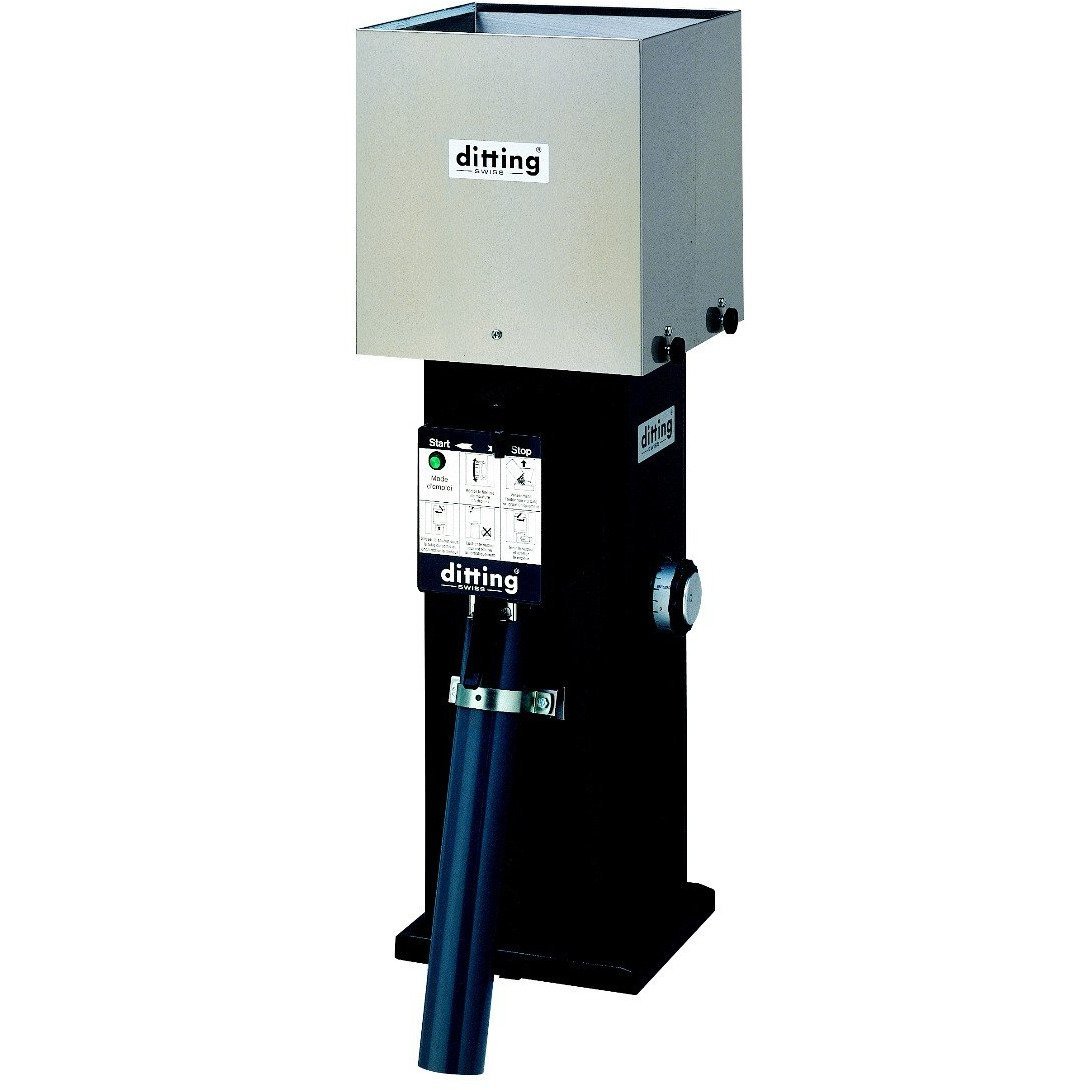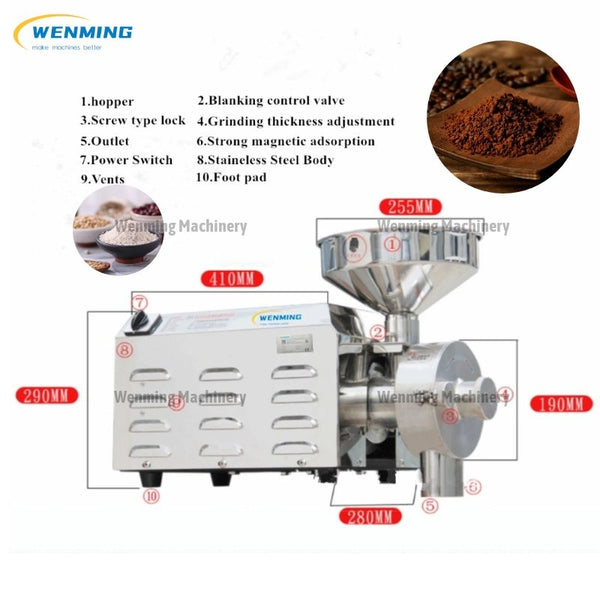Why Every Café Needs an Industrial Coffee Grinder
Why Every Café Needs an Industrial Coffee Grinder
Blog Article
Industrial Coffee Grinder Overview: Increase Performance and Quality
In the affordable landscape of coffee production, selecting the appropriate commercial coffee grinder plays a pivotal function in boosting both efficiency and product top quality. Understanding the nuances of numerous mill types and crucial functions-- such as customizable grind settings and durable building-- can significantly influence the last taste account of the coffee. Moreover, the optimization of the grinding process, combined with attentive upkeep, is important for maintaining efficiency gradually. As we check out these essential elements, it becomes apparent that the ramifications expand past mere devices option, influencing general service success in manner ins which require closer assessment.
Understanding Mill Kinds
When choosing an industrial coffee grinder, recognizing the different types available is essential for optimizing both taste removal and operational effectiveness. The 2 primary kinds of mills are blade grinders and burr grinders. Blade mills use sharp blades that chop coffee beans right into inconsistent dimensions, bring about unequal extraction and possibly unfavorable flavors. While blade mills are typically more budget friendly and appropriate for small operations, they are usually not advised for commercial use.

Eventually, selecting the best kind of grinder is indispensable to maintaining high quality and performance in coffee production, making it important for businesses to invest in high-grade burr grinders for ideal outcomes.
Trick Features to Think About
Choosing a commercial coffee grinder needs cautious factor to consider of several vital functions that can dramatically affect both performance and the overall coffee experience. One of the primary elements to examine is the grinding device. Burr mills are typically favored over blade mills, as they supply a consistent grind dimension, which is essential for optimal extraction and flavor.
One more important function is the grinder's capability. Depending upon the volume of coffee you need to process, select a design that can handle your needs without compromising rate or high quality. Furthermore, think about the grind settings provided. A versatile grinder with numerous setups enables you to tailor the grind size to various developing approaches, improving the coffee's flavor profile.
Evaluate the mill's noise level, specifically in a hectic coffee shop or production setting, where excessive sound can be disruptive. Investing in a mill that balances these functions can greatly improve both functional effectiveness and the top quality Click Here of the coffee served.
Optimizing Grinding Process
To accomplish the ideal outcomes in coffee prep work, maximizing the grinding process is crucial. The grind dimension significantly influences extraction, flavor, and overall quality of the brewed coffee.


Furthermore, keeping an eye on the grinding rate can enhance the process. Slower grinding typically creates less heat, preserving delicate tastes and fragrances. On the other hand, quicker grinding may generate excessive heat, negatively influencing the coffee's top quality.
Upkeep and Treatment Tips
Appropriate maintenance and care of commercial coffee mills are necessary for making sure ideal performance and longevity. Normal cleansing is the foundation of maintenance; deposit build-up can impact flavor and grinding efficiency. It is suggested to clean the mill after each use, wiping down the exterior and getting rid of any kind of coffee grounds from the burrs.
Furthermore, evaluate the grinding burrs for damage. Plain burrs can jeopardize grind consistency, so they ought to be changed as necessary. Industrial Coffee Grinder. Periodically adjusting the mill is likewise essential, as this keeps the preferred grind dimension for various developing methods
Lubrication of relocating parts need to be done according to the manufacturer's requirements, as this decreases rubbing and extends the life of the tools. It is necessary to use food-grade lubricating substances to make sure safety and compliance with wellness policies.
Last but not least, keep the mill in a secure and dry setting to prevent corrosion and corrosion. By adhering to these upkeep and treatment suggestions, drivers can enhance the effectiveness of their commercial coffee grinders while making sure high-quality outcome and expanded operational life.
Roi Analysis
Assessing the return on financial investment (ROI) for commercial coffee mills is crucial site link for businesses seeking to enhance their coffee production abilities. A thorough ROI analysis helps identify the monetary feasibility of purchasing high-grade mills, permitting organizations to consider the first prices versus prospective gains.
Analyze the purchase rate of the grinder, including setup and any type of essential adjustments to existing infrastructure. High-performance mills typically lead to reduced grinding time and raised throughput, which can considerably boost efficiency.
In addition, think about the impact on item top quality. Industrial Coffee Grinder. Superior grinders generate a more regular grind size, which can boost flavor accounts and customer fulfillment, ultimately driving sales. By boosting the top quality of the end product, businesses can validate greater pricing, causing increased income
Verdict
In summary, a commercial coffee mill plays an essential function in improving both effectiveness and product quality within coffee production. Inevitably, the critical financial investment in a trusted mill adds substantially to enhanced profits and competitiveness in the coffee industry.
In the affordable landscape of coffee manufacturing, picking the ideal commercial coffee grinder plays a pivotal duty in improving both effectiveness and product top quality. The 2 main types of mills are blade mills and burr mills. Within the burr grinder classification, there are flat burr grinders and conelike burr grinders, each with its advantages. Burr mills are typically preferred over blade mills, as they supply a constant work dimension, which is important for optimal removal and flavor.
In recap, a commercial coffee grinder plays a pivotal duty in improving both efficiency and item quality within coffee manufacturing.
Report this page